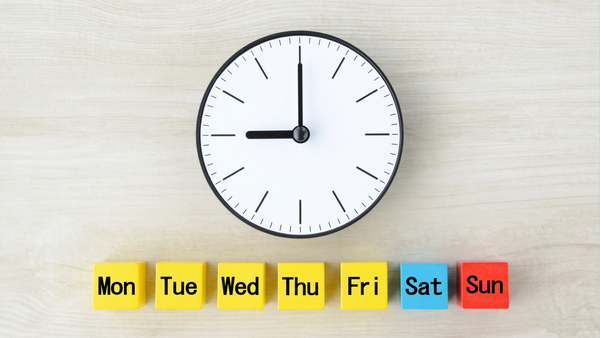Owning It: From Permission to Power — Why We Celebrate the Women’s Business Ownership Act and Keep Pushing Past Barriers Worldwide

This October marks 37 years since the Women’s Business Ownership Act, a landmark law that gave women the right to own, lead, and grow businesses on their own terms. Each year, women entrepreneurs and advocates use this month to honor that shift not just in law, but in what women are allowed to imagine, build, and claim as their own.
When You Needed a Man to Sign the Paperwork
Not that so long ago, a woman with a business idea couldn’t simply walk into a bank and apply for a loan. Even if she had a solid plan and steady income, she’d often need a man — a husband, father, or brother — to cosign, for no other reason than that she was a woman.
That started to change in 1988, when the Women’s Business Ownership Act (WBOA) was signed into law. For women, it marked the beginning of a new kind of freedom: the freedom to build, earn, and own without asking for permission.
This article honors the women who fought for that right and invites today’s entrepreneurs to ask: Where are we today as women entrepreneurs? What barriers still stand in our way? What are we reclaiming with every business we build?
The Law That Changed the Rules
In the 1980s, women in the US were starting businesses at higher rates than ever, but they faced countless barriers. Most banks still saw women, especially unmarried women, as high risk. The Small Business Administration offered little tailored support. Federal contracts rarely landed in the hands of women-owned firms. And there were no dedicated resources for women navigating business ownership on their own.
The push for change came from the ground up. Women’s business organizations and local advocacy groups gathered data, told their stories, and showed up in Washington. The result was the Women’s Business Ownership Act of 1988, a law that:
·Made it illegal for banks to require a male cosigner
·Established Women’s Business Centers across the country
·Created more inclusive access to federal contracts and business resources
·Funded research to track the progress of women entrepreneurs
Different Countries, Same Struggle
The US wasn’t the only place where women were fighting for the right to build on their own terms. Around the world, the timeline of financial independence looked very different from country to country.
In France, it took until 1965 for married women to legally open a bank account or work without their husband’s permission. In the UK, the legal right to own property separately from a husband came almost a century earlier, but real workplace and financial equality didn’t start to shift until the Equal Pay Act of 1970. In Australia, the Sex Discrimination Act of 1984 finally outlawed financial and workplace discrimination, giving women stronger ground to own and operate businesses. And in New Zealand, a country celebrated for early political rights for women, economic autonomy lagged until feminist and Māori movements of the 1970s and 80s forced those conversations into the open.
In India, women entrepreneurs remained rare well into the 1990s, held back by limited access to credit and deep social barriers. The government eventually stepped in with programs like SIDBI’s Mahila Udyam Nidhi to make loans more accessible.
Across East Asia, rapid industrial growth in the 1980s and 90s created new opportunities, but traditional expectations kept many women away from ownership and leadership. In South Korea, women-led startups only began to appear in real numbers in the 2000s.
In Latin America, reforms came unevenly. For example, in Mexico, married women only gained full control over property in the 1970s, while in Brazil, women could only open bank accounts and work without a husband’s consent after changes in the 1960s–70s. Across the region, women often turned to cooperatives and microfinance programs to get around banks that shut them out.
In Sub-Saharan Africa, the story is varied. In South Africa, the Matrimonial Property Act of 1984 began dismantling the old “marital power” system, and reforms through 1993 granted women equal control over property and financial decisions. Elsewhere, customary and religious law continued to limit women’s autonomy.
As of 2024, seven African countries — Cameroon, Chad, Equatorial Guinea, Eswatini, Guinea-Bissau, Kenya, and Niger— are among the few left in the world that still legally require male permission for certain financial actions. At the same time, women’s savings groups and microfinance networks have long been a lifeline for entrepreneurs across the continent.
In Eastern Europe and the former Soviet states, the story played out differently. Under socialism, women had formal equality at work but little room for private enterprise. When state economies collapsed in the 1990s, many women turned to entrepreneurship, running small shops, trading across borders, or offering services.
By 2024, most countries had finally removed the old legal barriers that once forced women to get a man’s permission justto open a bank account or register a business.
But changing the law doesn’t always change everyday reality.
In Saudi Arabia, women have officially been able to launch businesses without a guardian’s approval since 2018, and they no longer need permission to travel abroad — yet traces of guardianship remain in family law and daily practice.In Iran, a husband can still stop his wife from certain jobs, and she needs his consent to get a passport, both of which can shut down her chance to run a business freely. In Yemen and Sudan, heavy legal barriers still block women from full economic participation, while in Afghanistan today, business ownership for women has become nearly impossible. And even in countries where the law says women are independent — like Pakistan and Bangladesh — many banks still ask for a male guarantor before granting a loan.
The story is clear: rights on paper don’t always match rights in practice. For many women, starting a business is still an act of persistence, defiance, and reclamation.
The Glass Walls Still Standing
Driving a business isn't just about having ideas and grit; it's still about navigating systems, not always in your favour. Here’s what the latest research reveals:
·Funding remains deeply unequal. In the US in 2019, women owned 40% of all employer businesses—but received just 17% of SBA business loan approvals. In Europe, nearly 40% of startups are founded by women, yet they captured only 2.4% of total venture funding.
·VC funding is tightest for women. In 2025, female founders comprised just 13.7% of "million-dollar startup" founders. Females also received 14% less venture capital compared to men pitching identical ideas—yet those women-led startups delivered 35% higher ROI when they broke through.
·Women are penalized harder for failure. A 2025 study found that after a failed venture, women are 30% less likely to secure funding for a new project and raise 53% less capital than their male cofounders. Even with a successful exit, women still face a 27% lower chance of obtaining funding next time and raise significantly less on average.
·Bias is baked into investor networks. In the UK in 2024, all-female founding teams received only 1.8% of equity investments—and yet, female-founded firms have been shown to outperform male-led ones. First Round Capital’s data even showed female-led teams delivering 63% better performance.
·Success hailed, but only after greater scrutiny. Researchers note that women receive tougher, risk-focused questions—“How predictable are future cash flows?”—while men are asked about aspiration and scale—“What major milestones are you targeting?” That messaging shift narrows their chances of funding
Reclaiming Power, On Our Own Terms
Today, women entrepreneurs face a new set of challenges: securing funding, growing fast, being seen as successful, caring for themselves and their families, and finding balance in systems that were never designed with them in mind.
That’s why reclamation looks different now. It’s about time, energy, values, voice, trust, safety, and access.
What’s changed is that we’re not waiting. We’re building what we need, even when the systems lag behind. This is a moment to honor how far we’ve come — and to keep owning the future we’re building and shifting mindsets from “Can women really run a business?” to “How do we make space for the way women run business differently?”
This article is brought to you by Bitdefender Ultimate Small Business Security. We believe women should be safe to dream and create, and that’s why we’re offering a special 30% discount for female entrepreneurs throughout October.
Use this link to claim your offer
tags
Author
Cristina Popov is a Denmark-based content creator and small business owner who has been writing for Bitdefender since 2017, making cybersecurity feel more human and less overwhelming.
View all postsRight now Top posts
How Do You Manage Your Passwords? We Ask Netizens
December 18, 2025
Cybercriminals Use Fake Leonardo DiCaprio Film Torrent to Spread Agent Tesla Malware
December 11, 2025
FOLLOW US ON SOCIAL MEDIA
You might also like
Bookmarks









